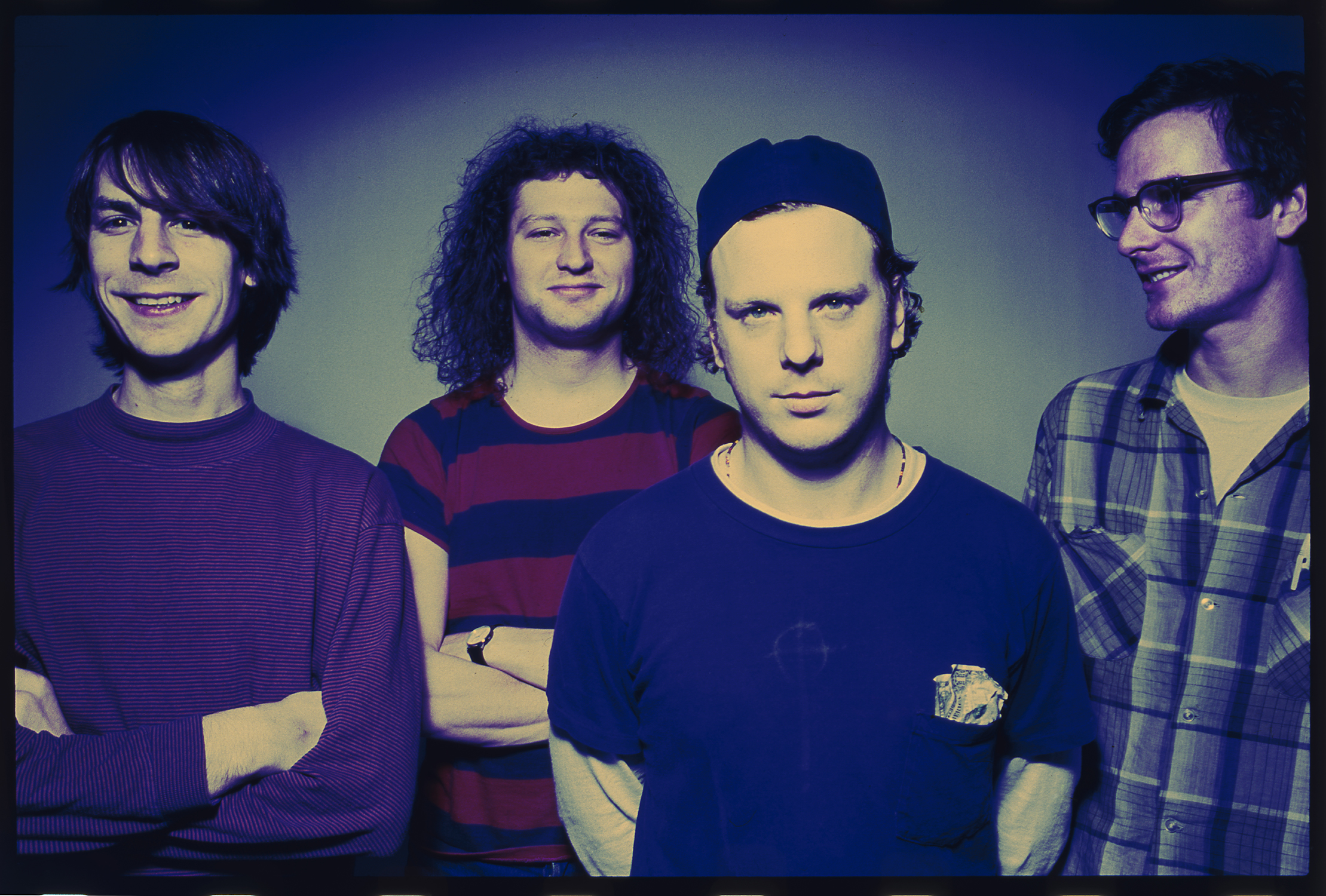As mainstays in Seattle’s music scene, Mudhoney are used to looking back on their career. Whether it’s giving their take on the days of grunge or reminiscing about time spent with the late Kurt Cobain, Mudhoney aren’t opposed to revisiting the past.
The band’s most recent project is one that finds them returning to the glory days of 1991, the year grunge officially broke. Mudhoney’s second album, Every Good Boy Deserves Fudge, celebrates its 30th anniversary with an expanded, deluxe reissue courtesy of their long-time label Sub Pop – but only because the guys in the band asked.
“They weren’t paying attention so I had to raise my hand,” says vocalist/guitarist Mark Arm, who also works in the label’s warehouse. “I was thinking about the next round number for one of our Sub Pop releases because they had missed our first album. But there wasn’t a lot of extra stuff from that one, whereas there was a lot from Every Good Boy Deserves Fudge.”
Putting together the reissue has been a way of keeping the band active during the pandemic. “It was a fun journey going through everything and finding other recordings, doing Zoom meetings with the dudes,” explains guitarist Steve Turner. “We don’t exactly sit around listening to Mudhoney records. I remember them more in my brain as snapshots of that era. But I think it’s a pretty cool record and pretty diverse.”
If you press the members of Mudhoney on what they think is the best work they’ve done in the band’s 33 years you won’t get much of an argument for anything recent. (Turner does admit Every Good Boy is his favorite, however.)
“Historically the first few years are when you get the best stuff out of any band,” Turner says. “I’m not discounting what we do now, but I’m totally fine with people saying [1988’s] Superfuzz Big Muff is the best thing we did.”
Mudhoney, however, isn’t your ordinary band. Their first few years are the stuff of legends. Arm and Turner had long been playing music together in Seattle’s punk scene; first in Mr. Epp and the Calculations, followed by the Limp Richerds and proto-grunge influencers Green River, a garage-metal band featuring future Pearl Jam members Jeff Ament and Stone Gossard.
The band was basically fully formed (rounded out by Matt Lukin on bass and Dan Peters on drums) in 1988 when they dropped their debut single, the instant classic “Touch Me I’m Sick,” and their first EP, Superfuzz Big Muff. By the time their self-titled debut album came out the following year, Mudhoney were at the forefront of a movement brewing in the Pacific Northwest.
Jokingly given the name “grunge,” the scene was quickly defined by its look (long, unkempt hair and heavy flannel wear) and sound (overdriven, sludgy rock). As the hype began to grow, Mudhoney were quick to try and distance themselves from association, but any band from the region was deemed a grunge band.
“We were pretty deep in the Seattle scene, obviously. And I was already over the Seattle scene by 1990, in a way,” remembers Turner. “Some bands were starting to sound the same, this brooding, heavy rock. I was a real, dedicated punk rock record collecting nerd. I went to the UK and all I did was buy cheap ’77 punk singles. We were just constantly playing those records and writing songs, so it just came out that way. And then buying the Farfisa helped veer it towards the ’60s garage sound too.”
Every Good Boy Deserves Fudge didn’t emerge as quickly or as easily as the band had expected it to. Like their previous recordings, they began working with producer Jack Endino, who is often regarded as “the godfather of grunge” for his extensive work in the scene. He convinced the band to try recording on a 24-track, but they only got a few songs in before calling time on the session.
“For me at the time, I didn’t like the way that stuff sounded, which was too clean, for what I thought we should have sounded like,” says Turner.
(For the first time ever, those recordings with Endino will be available on the reissue. Says Arm, “Jack’s had 30 years of recording experience since that time, so he’s been able to manipulate it to sound less clean and slick.”)
Instead they headed to Egg Studios to work with Conrad Uno. At first they wanted to knock out a series of punk covers (which they finally plan to release as a compilation at some point), but it didn’t take long for them to decide that Uno was the right person to help them make their sophomore LP.
“I called Conrad and asked about recording with him and he just laughed and said, ‘Why?’” Turner says with a laugh. “I thought that was a good response, so we went there and recorded those covers with him in one day. We got on really well with him. He’s really mellow, funny and talented. So when it was time to do the record we all felt it was right to go back there.”
“Egg was a great place to go, to help us change the way we did things,” says Turner. “That’s why it’s one of my favorite Mudhoney records. It was a little outside of the box for that time, and didn’t sound like anything else sounding like Seattle.”
Adds Arm, “It seems like a departure from what we were doing initially. We kind of expanded our reach, as far as our short arms could go.”
To completely set them apart from the scene, Mudhoney eschewed the usual Charles Peterson band photo and brought in illustrator Ed Fotheringham to design a more playful, stick-figured design for the artwork. The album’s mnemonic device-referencing title was simply the cherry on top.
“I think we were coming back from a tour and our guitars were out of tune,” remembers Arm. “I couldn’t remember what the notes were and Steve goes, ‘Every good boy deserves fudge!’ Which actually turned out to be a terrible tuning. Even Sonic Youth didn’t use that one.”
“Basically it was our musical ignorance that came up with it,” adds Turner. “And we thought it was funny.”
With the album in the can, all that was left was for Sub Pop to release it so the band could go on tour. However, there was a catch: the label was broke and on the brink of bankruptcy. On top of that, Mudhoney was still waiting for their royalty payments. But their options were limited.
“We really didn’t think of doing anything else with the album at the time,” says Turner. “I don’t remember there being another option. It was more frustrating because we had this tour lined up and our record was being delayed and they owed us some money.”
(One year later, Mudhoney joined the major label club and signed with Reprise/Warners. “My point of view was we left Sub Pop to try and salvage our friendships with them,” adds Turner. “It was getting kind of ugly because money was involved.’)
Released on July 23, 1991, just weeks before Nirvana released the game-changing Nevermind, Every Good Boy Deserves Fudge would go on to sell a respectable 75,000 copies, helping Sub Pop get out of the red. It even cracked the UK’s top 40 album chart. While fame and fortune would never come knocking the way it did for their peers, Mudhoney feel that was likely for the best.
Released on July 23, 1991, just weeks before Nirvana released the game-changing Nevermind, Every Good Boy Deserves Fudge would go on to sell a respectable 75,000 copies, helping Sub Pop get out of the red. It even cracked the UK’s top 40 album chart. While fame and fortune would never come knocking the way it did for their peers, Mudhoney feel that was likely for the best.





